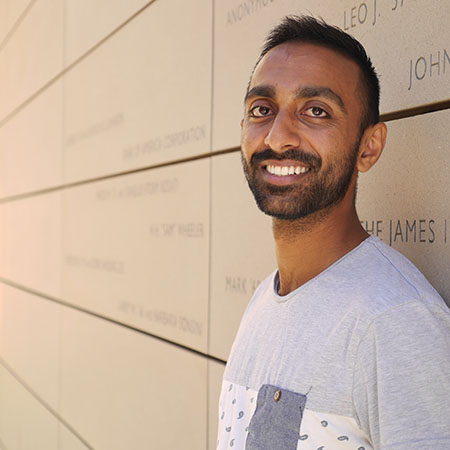 Hometown: Orange County, CA
Hometown: Orange County, CA
Education: Middlebury College 2012
Affiliations: The Post-Conviction Advocacy Project, ElectionLaw@Boalt, California Law Review, Legal Research & Writing tutor
The Post-Conviction Advocacy Project (P-CAP, one of Berkeley Law’s many student-initiated legal service projects) allows students to get deep exposure to the criminal justice system and build deep relationships with clients. The program assigns two or three students to work with a prisoner who is eligible for parole for six to 18 months, and potentially even longer, to help them prepare for an upcoming parole board hearing. P-CAP students are currently working with clients at San Quentin, Mule Creek, and the women’s prison in Chowchilla, which is where my client is serving a life sentence.
We travel to the prison to work with clients about once a month. We work with a client up until their parole board hearing. Our job is to help them develop their own narrative and communicate to the Board of Parole why they should be paroled. Sometimes that means exploring their childhood or their crime or what they’ve done in prison. The other piece is helping them practice presentation skills, so we do mock hearings and ask them questions as the board might and help them practice giving answers. Finally, we represent the client at their parole hearing under the supervision of an attorney at a local non-profit called UnCommon Law.
The clients do a huge amount of work to prepare for their hearings. The sad thing is that this process is so weighted against them. The board has a ton of discretion. Their standard of evidence is “some evidence,” so they can point to anything—before and during the prison term—to deny the grant. What the board wants to see is that the prisoner has internalized the justification for their incarceration, even when their incarceration was wholly unjustified.
Fortunately, my client was granted parole, but the work opened my eyes to everything that is wrong with the criminal justice system. The parole process in California needs reform.